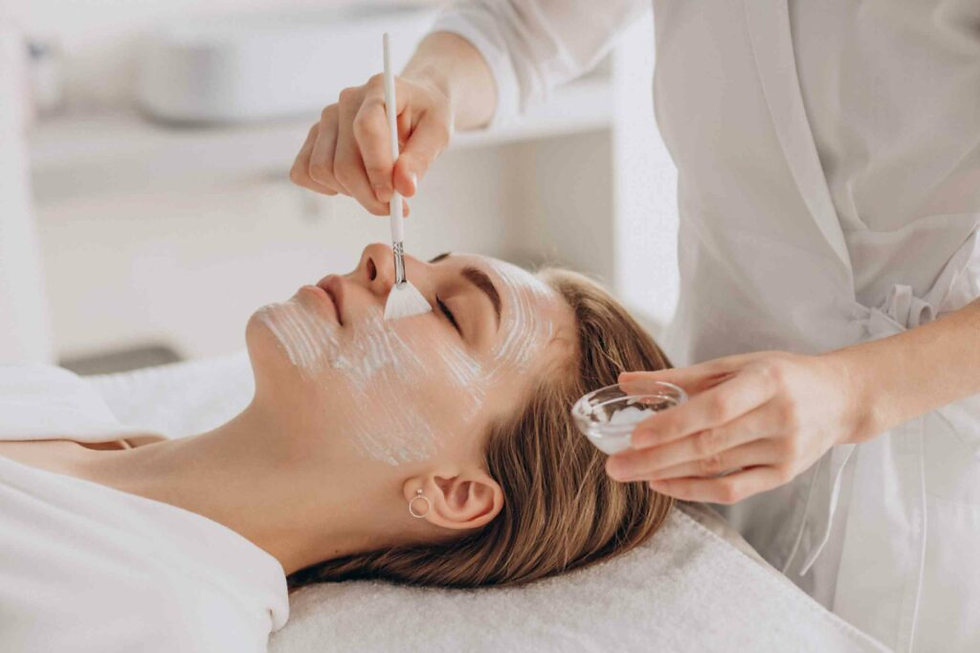How Often Should You Whiten Your Teeth?
- Bisma Jamal
- Feb 26, 2025
- 3 min read
A bright and dazzling smile is something everyone desires, and Teeth Whitening has become one of the most popular cosmetic dental treatments worldwide. Whether done professionally or using at-home methods, whitening can significantly enhance your appearance and boost your confidence. However, one common question many people ask is: How often should you whiten your teeth? Over-whitening can lead to tooth sensitivity and enamel damage, so finding the right balance is key.
Understanding Teeth Whitening
Teeth whitening is a process that removes stains and discoloration from the teeth, helping to restore their natural or enhanced brightness. Stains can be caused by various factors, including food, beverages, smoking, and aging. Whitening treatments use bleaching agents such as hydrogen peroxide or carbamide peroxide to break down these stains and make the teeth appear whiter.
Types of Teeth Whitening Methods
There are several ways to whiten teeth, each with different levels of effectiveness and longevity:
🟡 In-Office Professional Whitening – This is the most effective and fastest method, performed by a dental professional. It usually involves a higher concentration of bleaching agents and special light or laser activation for quick and long-lasting results.
🟡 At-Home Whitening Kits – These kits contain lower-concentration bleaching gels and trays that allow users to whiten their teeth gradually over a few weeks.
🟡 Whitening Strips and Gels – These over-the-counter options provide moderate whitening effects by adhering to the teeth for a specific period daily.
🟡 Whitening Toothpaste and Mouthwash – Though not as potent as other methods, whitening toothpaste and mouthwash help remove surface stains and maintain brightness after professional treatments.

Factors That Affect Whitening Frequency
Several factors determine how often you should whiten your teeth:
🟡 Tooth Sensitivity – Overuse of whitening products can lead to sensitivity. If you experience discomfort, consider reducing the frequency of treatments.
🟡 Diet and Lifestyle Habits – Coffee, tea, red wine, and smoking can cause stains to return quickly. If you consume these regularly, you may need more frequent touch-ups.
🟡 Type of Whitening Treatment – Professional whitening lasts longer than at-home kits, so touch-ups will vary based on the method used.
🟡 Oral Hygiene Routine – Regular brushing, flossing, and using whitening toothpaste can prolong the results, reducing the need for frequent treatments.
How Often Should You Whiten Your Teeth?
🟡 Professional Whitening: Every 6 to 12 months, depending on diet and habits.
🟡 At-Home Whitening Kits: Every 4 to 6 months for maintenance.
🟡 Whitening Strips: Every 3 to 6 months, but avoid excessive use to prevent sensitivity.
🟡 Whitening Toothpaste: Can be used daily but should not replace regular toothpaste entirely.
Tips to Maintain Whiter Teeth
To extend the longevity of your whitening results and minimize the need for frequent treatments, follow these best practices:
🟡 Avoid Staining Foods and Drinks – Limit consumption of coffee, tea, red wine, and dark-colored sauces.
🟡 Use a Straw – When drinking staining beverages, use a straw to minimize direct contact with teeth.
🟡 Brush and Floss Regularly – Good oral hygiene prevents plaque buildup and stains.
🟡 Rinse After Eating – Swishing water in your mouth after meals helps remove staining particles.
🟡 Use Whitening Touch-Up Products – Whitening pens and toothpaste help maintain brightness between treatments.
🟡 Visit Your Dentist for Regular Cleanings – Professional cleanings remove surface stains and keep your teeth looking fresh.
Are There Risks of Over-Whitening?
Excessive whitening can cause damage to the enamel, making teeth more sensitive and prone to decay. It’s crucial to follow the recommended guidelines and consult with a dental professional if you experience discomfort. Overuse of bleaching agents can weaken the tooth structure, leading to long-term oral health issues.
Conclusion
Teeth whitening is an effective way to enhance your smile and boost confidence. However, maintaining the right balance and avoiding excessive treatments is essential to preserving oral health. The frequency of whitening depends on the method used, lifestyle habits, and individual dental needs. By following proper aftercare and adopting a stain-free routine, you can enjoy a radiant smile for a longer time without causing harm to your teeth. Always choose safe and approved whitening methods for the best results. How Often Should You Whiten Your Teeth?



Comments